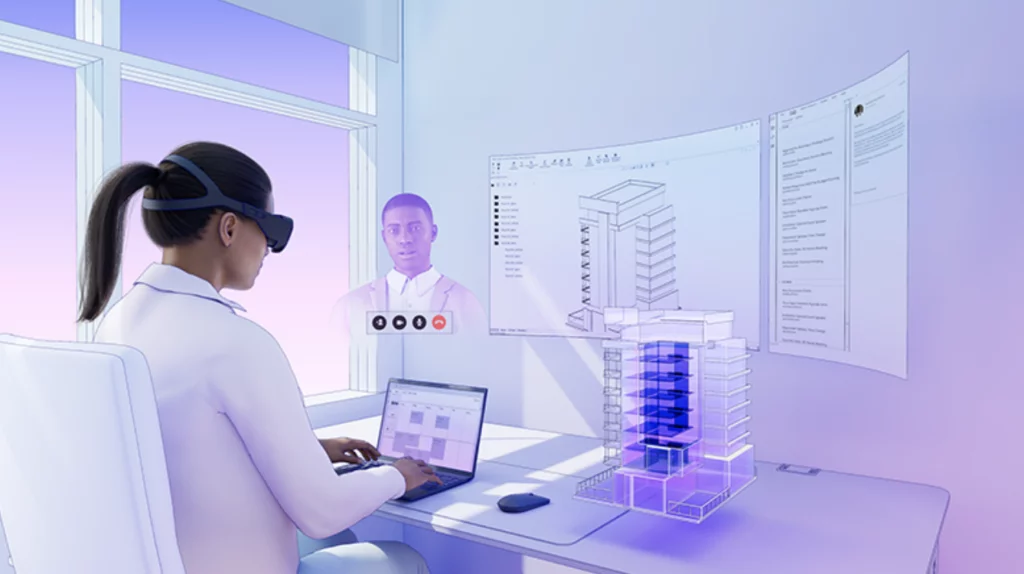[ad_1]
Meta is set to expand its Meta Quest ecosystem by opening up the operating system of its Meta Quest devices to third-party manufacturers, including industry leaders like Xbox and Lenovo. Utilizing Meta Horizon OS, this move could potentially shape the future of the metaverse and make mixed-reality technologies more accessible to a larger audience.
Collaborating for a Larger Audience
Meta has been investing in mixed reality technologies for over a decade, and by partnering with global technology leaders, they hope to bring this experience to an even larger audience. According to a recent blog post, third-party hardware manufacturers can now create a new wave of mixed-reality devices by utilizing their Meta Horizon OS, which powers the Meta Quest headsets.

The Meta Horizon OS, explicitly designed for the Meta Quest headsets, will now act as the backbone for a range of new mixed-reality hardware. With its advanced technology and emphasis on social interaction, this operating system aims to provide a more intuitive and connected user experience.
To push the boundaries of standalone headsets, Meta has developed technologies such as inside-out tracking, self-tracked controllers, and hand, eye, face, and body tracking systems. They have also created tools for blending the digital and physical worlds, like high-resolution Passthrough, Scene Understanding, and Spatial Anchors. These investments have led to an operating system that is currently used by millions of people.
Meta’s partnership with industry leaders has resulted in the development of new devices based on the Meta Horizon OS.
ASUS’s Republic of Gamers is creating a performance-oriented gaming headset. Moreover, Lenovo will leverage its experience from co-designing the Oculus Rift S, along with its extensive expertise in engineering top devices like the ThinkPad laptops, to create mixed-reality devices aimed at enhancing productivity, education, and entertainment.
Last year, Xbox and Meta collaborated to introduce Xbox Cloud Gaming (Beta) to Meta Quest, enabling users to play Xbox games on a large virtual 2D screen in mixed reality. Building on that partnership, they are now developing a limited-edition Meta Quest inspired by Xbox.
An Ecosystem for Developers
With the Meta Horizon OS, developers can now access a comprehensive suite of tools to create immersive mixed-reality experiences. Additionally, they can take advantage of integrated content discovery and monetization platforms, such as the rebranded Meta Horizon Store, to reach a wider audience and expand their business ventures.
Moreover, the Meta Horizon OS’s social infrastructure allows users to carry their identities, avatars, and social connections across virtual spaces. This enables developers to incorporate these social features into their applications, creating a more connected mixed-reality ecosystem.
[ad_2]
Read More: nftnewstoday.com









 Bitcoin
Bitcoin  Ethereum
Ethereum  Tether
Tether  XRP
XRP  Solana
Solana  USDC
USDC  TRON
TRON  Dogecoin
Dogecoin  Lido Staked Ether
Lido Staked Ether  Cardano
Cardano  Wrapped Bitcoin
Wrapped Bitcoin  Hyperliquid
Hyperliquid  Wrapped stETH
Wrapped stETH  Bitcoin Cash
Bitcoin Cash  Sui
Sui  LEO Token
LEO Token  Chainlink
Chainlink  Stellar
Stellar  Avalanche
Avalanche  USDS
USDS  Toncoin
Toncoin  WhiteBIT Coin
WhiteBIT Coin  Shiba Inu
Shiba Inu  Binance Bridged USDT (BNB Smart Chain)
Binance Bridged USDT (BNB Smart Chain)  Litecoin
Litecoin  WETH
WETH  Wrapped eETH
Wrapped eETH  Hedera
Hedera  Ethena USDe
Ethena USDe  Monero
Monero  Polkadot
Polkadot  Bitget Token
Bitget Token  Coinbase Wrapped BTC
Coinbase Wrapped BTC  Pepe
Pepe  Uniswap
Uniswap  Pi Network
Pi Network  Dai
Dai  Aave
Aave  Ethena Staked USDe
Ethena Staked USDe  OKB
OKB  BlackRock USD Institutional Digital Liquidity Fund
BlackRock USD Institutional Digital Liquidity Fund  Bittensor
Bittensor  Aptos
Aptos  sUSDS
sUSDS  Cronos
Cronos  Internet Computer
Internet Computer  Jito Staked SOL
Jito Staked SOL  NEAR Protocol
NEAR Protocol  Ethereum Classic
Ethereum Classic